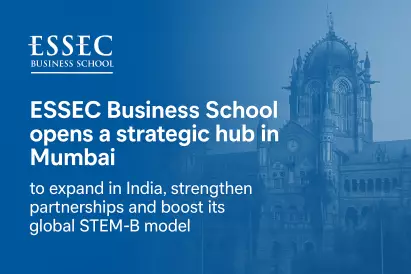Summary: Master’s programs in Senegal are becoming increasingly critical as the nation aligns higher education with industrialization and digital transformation goals. This article outlines key trends shaping graduate education, highlights present challenges, and explores opportunities for 2025 and beyond.
Context and Strategic Role of Master’s Degrees in Senegal
By 2025, master’s degrees in Senegal will serve as a fundamental bridge between academic achievement and the labor demands of a transforming economy.
Guided by the country’s Vision 2050 strategic framework, education — particularly graduate programs — is being reshaped to contribute directly to industrial growth and digital innovation.
With a massive influx of youth into the workforce across West Africa — approximately 6 million annually — Senegal faces the dual challenge of employment generation and skills alignment.
The country’s projected GDP growth of 7.9% in 2025, driven by sectors such as agriculture, manufacturing, and digital services, underscores the need for highly skilled professionals ready to enter and thrive in the formal economy.
Graduate programs in critical domains like Industrial and Operations Management and Economics are becoming increasingly relevant to meet these national imperatives.
Evolving Fields of Study Reflecting National Priorities
Senegal’s economic pivots have shifted demand towards master’s programs that support technological advancement and industrial strategy.
While traditional degrees in law, finance, and business maintain traction, STEM disciplines are experiencing robust growth.
Key areas such as data science, cybersecurity, and artificial intelligence align with the government’s focus on technological transformation.
Initiatives like the Digital Senegal 2025 Strategy spark interest in specialized programs, including Cybersecurity and Data Protection and Data Analytics, reflecting a commitment to future-ready training.
Interdisciplinary Approaches and Program Flexibility
Higher education reforms, such as the adoption of the LMD (Licence-Master-Doctorate) format, have introduced new flexibility into Senegal’s graduate education system.
Programs now increasingly combine fields of science, business, and humanities to solve real-world challenges.
Collaborative structures between universities and industries are helping students gain practical, cross-functional skills.
This model supports versatile profiles needed in disciplines like Innovation and Project Management or Consulting and Strategy.
Digital and Hybrid Learning Models Expand Access
The COVID-19 pandemic accelerated the global transition to digital education, and Senegal responded with increased investment in IT infrastructure, aligned with its Digital Senegal 2025 strategy.
Blended learning now plays a crucial role in enhancing access to graduate programs nationwide.
Hybrid formats — combining online platforms with in-person instruction — broaden reach to include working students, rural populations, and women.
Programs in fields such as E-Business and Digital Marketing are ideally suited to this mode, due to their inherently tech-driven content and delivery.
Internationalization and Academic Mobility
Senegal is actively engaging with regional and international frameworks to boost the global competitiveness of its graduate programs.
Through partnerships with systems like CAMES and alliances like ARUA (African Research Universities Alliance), Senegalese master’s degrees are gaining international recognition.
This shift enhances student exchange, joint research, and mobility across Francophone and Anglophone countries.
Global recognition is especially important in fields like International Business Law and International Management, where credential validation is essential for cross-border careers.
Cost Considerations and Funding Landscape
The cost of a master’s degree in Senegal ranges between $900 and $2,700, with higher tuition seen in STEM and health-related programs.
Despite modest averages, affordability poses a challenge, especially for rural and low-income students.
Financial aid mechanisms, including international scholarship programs like the Mastercard Foundation’s PFPI, are addressing this gap by supporting inclusive workforce development.
Careers in sectors such as Public Health Economics or Agribusiness Management often benefit from such targeted funding.
Student Profiles and Career Expectations
Master’s students in Senegal are predominantly young individuals focused on employability and entrepreneurship.
Many balance studies with work or business ventures, seeking programs that provide flexible schedules, industry-relevant skills, and pathways into innovation.
There is growing interest in practical disciplines like Entrepreneurship and Quality Management, which appeal to students’ aspirations to launch businesses or contribute meaningfully to local economies through innovation.
Main Challenges Confronting Master’s Education
Several critical hurdles inhibit the maximum impact of graduate education in Senegal:
- Affordability: Persisting costs deter underprivileged segments despite existing scholarship schemes.
- Curricular Relevance: Rapid technological change requires constant curricular revision, especially for sectors like energy, agriculture, and tech.
- Quality Assurance: Expansion of online and hybrid models necessitates new accreditation and evaluation protocols.
- Faculty Development: Recruiting and retaining expert educators with innovative pedagogical skills remains a longstanding obstacle.
Specialized areas such as Risk Management and Sustainable Development demand advanced instructional methods and real-world integration.
Future Opportunities for Graduate Education
The strategic direction of Senegal’s higher education opens up substantial opportunities:
- Leverage broadband to increase rural and remote access via digital and hybrid programs.
- Foster interdisciplinary master's programs that bridge science, entrepreneurship, and management.
- Boost international collaborations for joint degrees and cross-border research.
- Implement targeted policies to update curriculum and teaching capacity effectively.
Future-forward dimensions like Innovation and Design Thinking and Green Finance can serve as catalyst programs merging social responsibility with economic transformation.



